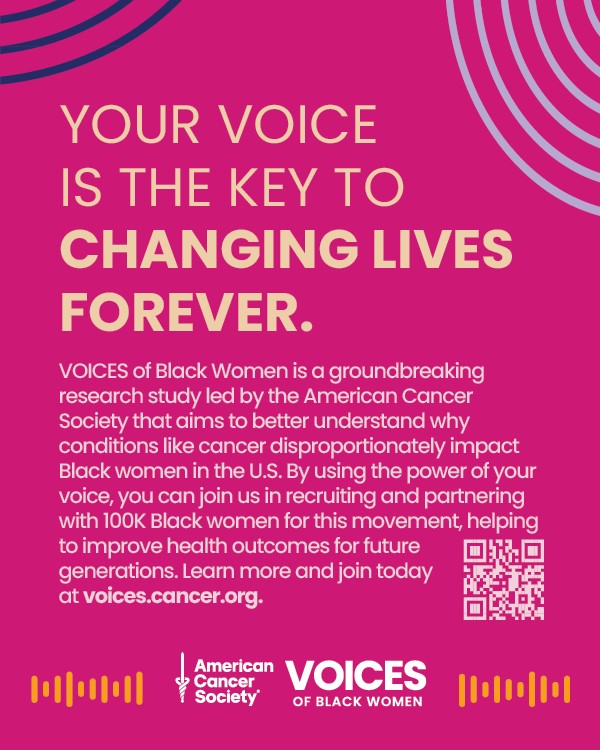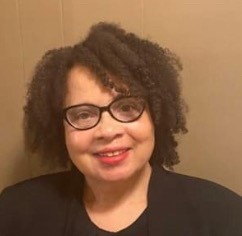It’s Been Too Long: Communities Not Just in Missouri but Across the Nation Must Champion the American Cancer Society’s VOICES Initiative to Achieve Health Equity for Black Women
As the American Cancer Society (ACS) unveils its VOICES of Black Women™ study, it marks a pivotal moment in the fight against cancer disparities.
This groundbreaking initiative, aiming to enroll over 100,000 Black women across the country, including Missouri, stands as a beacon of hope in the quest for health equity. With a sharp focus on behavioral and environmental factors, VOICES seeks to unravel the intricate web of determinants influencing cancer risk and outcomes in this long-overlooked demographic.
In Missouri where Black women are disproportionately affected by cancer disparities, this initiative resonates deeply. It’s a sobering reminder that behind every statistic lies a human story—a story of resilience, struggle, and often, systemic neglect in our state’s communities from St. Louis to Cape Girardeau to Popular Bluff to Springfield.

Recent headlines underscore the pressing need for initiatives like VOICES. With ongoing discussions surrounding healthcare disparities and the impact of African American health outcomes, the timing of the study couldn’t be more crucial.
Led by esteemed researchers Dr. Alpa Patel and Dr. Lauren McCullough, the VOICES of Black Women™ study is not just about collecting data—it’s about partnering with Black communities and experts in women’s health, elevating lived experiences and shining a light on their everyday yet nuanced challenges.
Critics may question the need for yet another study in the cancer space, but the evidence speaks for itself and why a tailored approach is needed here. In order to improve health equity in our communities we have to have an equal playing field. It is unrealistic to think we can achieve health equity if we are not part of the process. Decades of research by the American Cancer Society have yielded invaluable insights, from linking smoking to lung cancer to uncovering the impact of obesity on mortality. We now must focus on the Black women we know and love.
I am a mother of three daughters, a sister of a breast cancer survivor, a caregiver to my mother who was battling cancer, a wife, grandmother and researcher. I see myself as a social change agent who is dedicated and focused in creating heath equity in my community. I understand that in order to achieve this goal I must be engaged and present. This can be done through team building, recruitment and participation in research studies. This is crucial because people of color face persistent disparities in health outcomes because their voices are often excluded from decision-making process. Engaging in this type of qualitative research is essential. It can amplify their voices, improve population health outcomes, and curb inequity. The lack of participation is understandable. It is often because of fear and lack of trust, because of past unfair treatment to people of color who participated in research studies. So much has changed, and guidelines have been put in place to protect vulnerable populations. To improve health equity in our communities, participation in research studies should be encouraged. The opportunity has come for us not to be excluded! Therefore, I am honored and excited to been selected to be the American Cancer Society “VOICES” Ambassador for Southeast Missouri. With excitement, I will join the VOICES of Black Women national study and assist in recruiting Black women in the Southeast Missouri Area.
Eligible participants, aged 25 to 55, are invited to contribute their voices to this monumental effort. Through a secure online portal, participants will share their stories, providing invaluable insights that will shape future interventions. To enroll in the study, go to voices.cancer.org
For too long, systemic barriers have stood in the way of equitable cancer care. The VOICES of Black Women™ study is not just a research endeavor—it’s a call to action. It’s American Cancer Society’s declaration that every voice matters, and every story deserves to be heard.
Sincerely,
Missouri, Adrienne Hunter-Green































